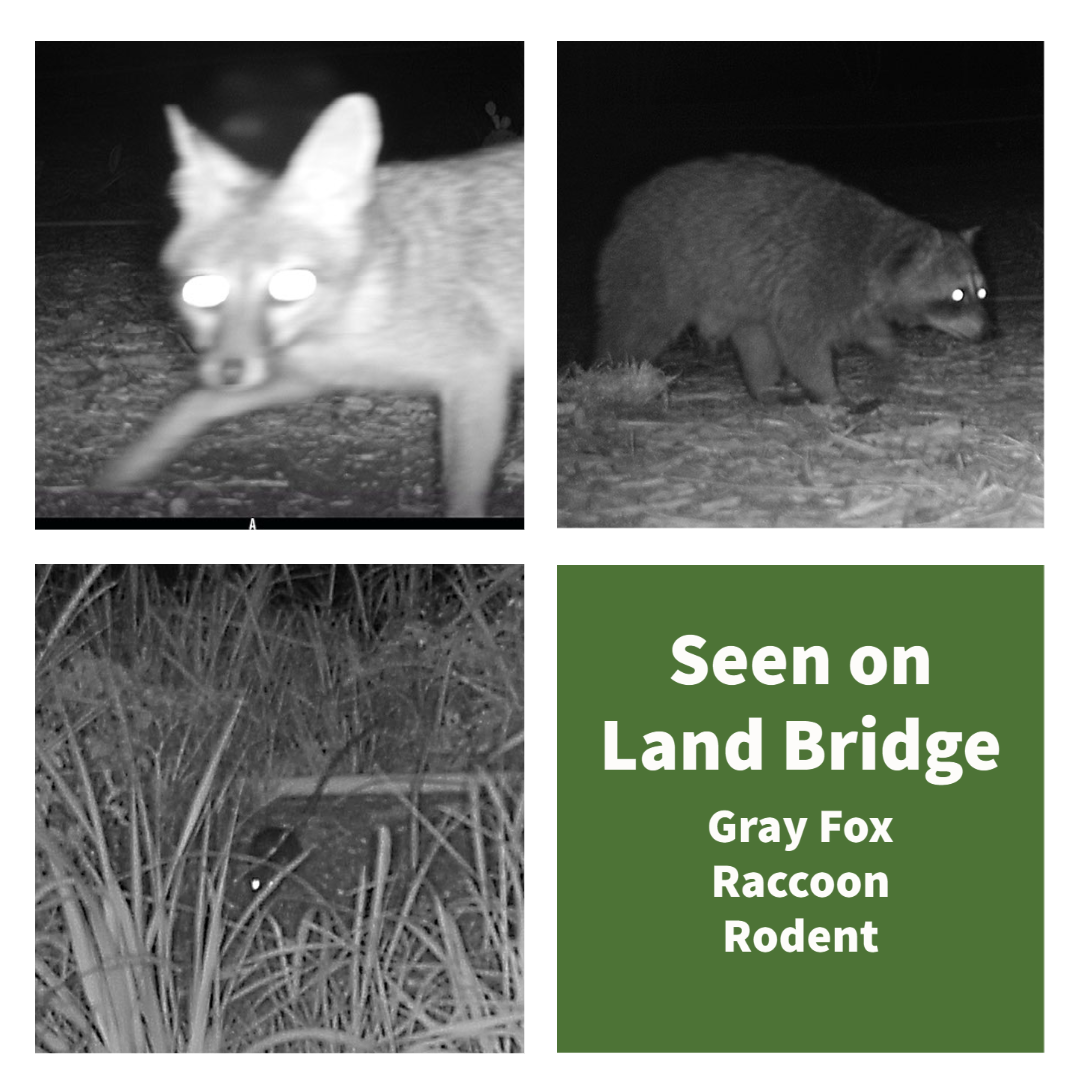The Wildlife Biologists for Phil Hardberger Park have captured images of four more species using the Land Bridge. The new species are Gray Fox, a raccoon, a type of rodent, and most exciting of all, a bobcat!
Previously seen species have been: Virginia Opossum, a cotton-tailed rabbit, a coyote, and White-tailed Deer.
That brings the count to eight different species that have been seen in the wildlife study.
Bobcat (Lynx Rufus)
By Jewell Lee Cozort, Park Naturalist
Only slightly larger than a domestic cat, bobcats weigh 11 to 19 lbs. and are occasionally seen in urban settings that interface with parks.
Bobcats are brown or grayish in color and are spotted and streaked with black. Their young are called kittens, just like domestic cats. The tell-tale sign of a bobcat, of course, is the short “bobbed” tail.
The risk bobcats pose to humans is low. They are most active at night. While resting during the day, they’ll shelter in a thick stand of shrubs, in a hollow tree, or in a cliff crevice. They are good hunters and consume small prey including rabbits, squirrels, rats, and mice. Baby deer, known as fawns, can be prey in the summer. Bobcats may travel up to five miles hunting.
The Robert LB Tobin Land Bridge has created a new corridor for wildlife to access both sides of the park and new habitat for hunting. If you are fortunate enough to spot a bobcat on a visit to the park, count yourself lucky!


